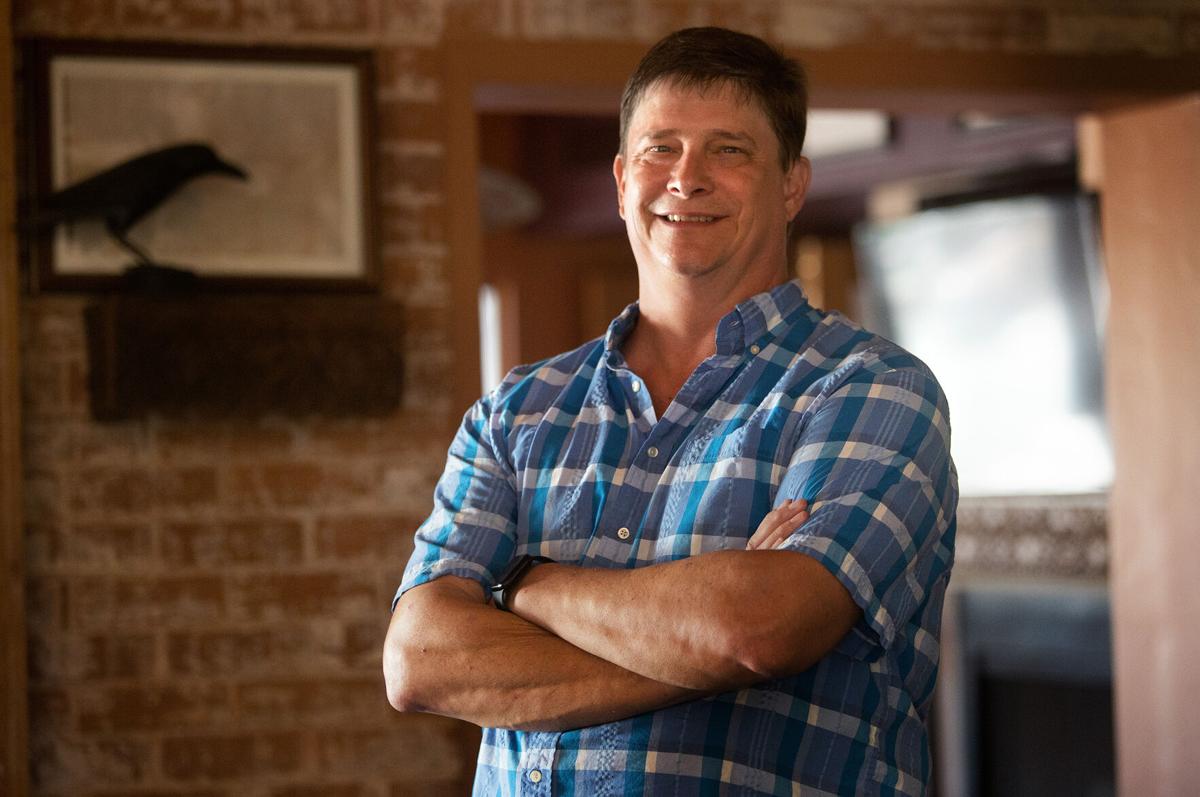Tucson can never erase its history of housing discrimination, but one neighborhood may have found a simple way to bury that legacy racism in the past where it belongs.
The San Carlos Place Neighborhood Association has successfully amended its property restrictions to redact prejudiced and illegal language left over from when the midtown subdivision was first established in 1946.
And all it took was some official letterhead, a notary’s stamp and $30 for the filing fee at the Pima County Recorder’s Office.
“Some folks have concluded that fixing this situation is a big, nasty legal process, but I just don’t see it,” said Peter Williams, board chairman for the San Carlos neighborhood group. “This is an elegantly simple answer to an ugly situation, which is we have this language, we want to get rid of it and we’re tired of being told how hard it is.”
San Carlos Place is an unexpected island of desert amid the bustle of midtown. Nestled west of Swan Road between Grant Road and Glenn Street, the neighborhood includes 77 homes, most of them on 1-acre lots covered in native vegetation.
It is also one of more than 200 Tucson subdivisions with overtly racist language still embedded in their founding documents, long after such discriminatory restrictions were ruled unconstitutional by the U.S. Supreme Court in 1948 and explicitly outlawed as part of the Civil Rights Act of 1964 and the Fair Housing Act of 1968.
The Jim Crow relics survive in the covenants, conditions and restrictions of many neighborhoods — not just in Tucson, but nationwide — in part because changing the private agreements among homeowners has long been seen as lengthy, complicated and expensive.
But the solution Williams came up with for San Carlos Place doesn’t require a lawyer or a court date. On July 11, with the blessing of the rest of the association’s board, he simply submitted a revised version of the neighborhood’s codes, along with a notarized letter explaining the change and his authority to make it.
A black rectangle now covers the section of the San Carlos CC&Rs that once prohibited “any person of African or Asiatic descent” or “not of the White or Caucasian race” from owning property or living in the subdivision unless they were employed there as domestic servants.
“If you’ve got a board with clear authority, you’ve got language that is null and void and you go through the process of a sworn notary statement that validates both of those things, it’s as simple as filing it with the Pima County recorder,” explained Williams, a semi-retired federal employee and management consultant now in his second term as neighborhood chairman. “If someone wanted to do this, now that there’s sort of a model, I really think they could do it in a handful of hours.”
San Carlos residents had one thing going for them: a severability clause in their codes that allows for invalid restrictions to be jettisoned without affecting the remaining rules.
And unlike other Tucson neighborhoods with discriminatory restrictions, the CC&Rs for San Carlos Place do not include a so-called “perpetuity clause” that seeks to make the racist rules permanent.
Williams’ efforts built on an earlier campaign by San Carlos residents to disavow the subdivision’s ugly past. In 2013, homeowners there signed a petition, called the Sense of San Carlos, that rejected the racist language in their codes.
The petition was filed with the recorder’s office in hopes that it would be distributed by title companies along with the neighborhood’s CC&Rs, but it hasn’t worked out that way, Williams said.
The only solution was to target the offensive section itself.
“Unless or until it’s redacted and gone, it’s still jarring,” he said. “I call it closing the loop. We close the loop by actually redacting the language.”
Williams and his wife, Kathy Voth, moved into San Carlos Place about 10 years ago. At the time, he said, he didn’t notice the racist restrictions in the stacks of documents they had to sign when they bought their house, but he has heard a lot about them since.
When he joined the association board about five years ago, he was occasionally called upon to send out copies of the CC&Rs to title companies and the like. Williams said the first time he was asked to do it, he refused because he didn’t want to be associated with the hateful language in the document.
After that, he took to blacking out the racist restrictions himself in the CC&Rs he sent out, but he quickly realized that a more official, permanent solution was needed.
Now that he seems to have found one, Williams hopes other local neighborhoods can put it to use. And he isn’t the only one.
Tucson City Councilman Steve Kozachik, whose Ward 6 includes San Carlos Place, is encouraging other local neighborhood associations to check out what Williams and his neighbors did. The councilman included a detailed summary of the process in one of his weekly newsletters to constituents last month.
“Here’s the bottom line: If someone wants to sue you, they’ll be suing to have language reinstated into your CC&Rs that is in violation of federal and state law,” Kozachik wrote. “I’d be willing to roll those dice.”
Though one simple redaction can’t heal decades-old wounds left by discrimination, it can prevent future homebuyers from having to sign their names to a document still marked by hate.
Williams said he loves his “increasingly diverse neighborhood,” and he won’t miss seeing his new neighbors recoil in horror when they read those old race-based restrictions for the first time.
“To know that language was still causing pain today? That’s what I saw,” he said. “I didn’t want it.”
Get your morning recap of today's local news and read the full stories here: http://tucne.ws/morning





